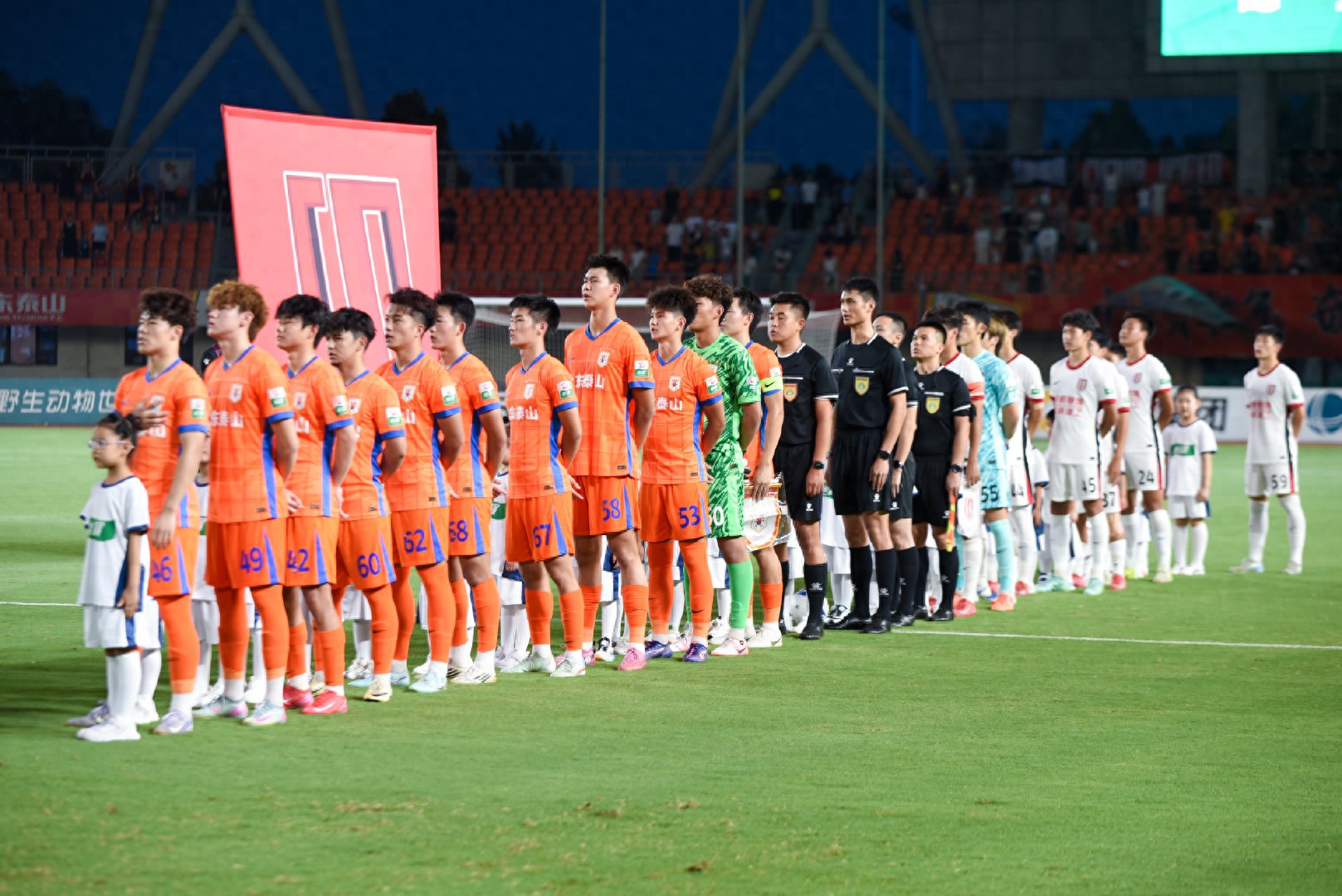China League Two Promotion Group: Two Chinese Super League B Teams Stir Things Up

Reporter Chen Yong reports Last weekend’s China League Two final stage championship group (promotion group) matches included the B teams of two CSL clubs, Shandong Taishan B and Chengdu Rongcheng B. In the opening round, these two teams met and drew 1-1. Neither team is eligible for promotion or likely to win the League Two title; their focus is mainly on developing young players. Nevertheless, they still possess the strength to disrupt the championship group competition.
Taishan and Rongcheng: Main Squad in CSL, Youth Development Focused
On the evening of the 23rd, Shandong Taishan B hosted Chengdu Rongcheng B, with the match ending 1-1. At the 15th minute, a clearance error by Peng Haochen allowed Aizihairu Tasimemaiti to score into an open net, giving Shandong Taishan B a 1-0 lead. Zhou Yunyi equalized in the 26th minute. In the second half, both sides had chances but could not change the scoreline. The game concluded in a 1-1 draw.
Entering the final stage, since neither team qualifies for promotion, both Shandong Taishan and Chengdu Rongcheng adjusted their B team lineups. Shandong Taishan excluded Peng Xiao and Mei Shuaijun from the B squad, meaning these players will focus on the first team. Chengdu Rongcheng’s main attacker Liao Rongxiang also did not participate with the B team, recently playing more for the first team, starting in the FA Cup quarterfinals and scoring his first top-tier league goal after coming on in the 76th minute of the 22nd CSL round on the 23rd. Meanwhile, 16-year-old Shuai Weihao became a regular starter for Chengdu Rongcheng B.
For Shandong Taishan B, besides Peng Xiao and Mei Shuaijun focusing on first team duties, midfielders Yimulan and Chen Zeshi remain sidelined due to injuries, and Shi Songchen has only just recovered. Essentially, the strongest central defense and midfield have been completely disrupted.
After the draw, Chengdu Rongcheng has 41 points and Shandong Taishan 40 points, widening the gap with teams ahead and making championship hopes slim. Although they cannot promote even if they win future matches, they still have the capability to influence the promotion race. For example, Shandong Taishan B drew both home and away against Wuxi Wugou in the preliminary stage, which explains Wuxi Wugou’s limited points advantage. Thus, these two CSL B teams will to some extent affect the promotion dynamics.
Wuhan Three Towns and Shanghai Port: Clear Points Advantage, Minimal Relegation Pressure
After the 2023 U21 league ended, Shandong Taishan B and Shanghai Port B qualified for the China League Two. In the 2024 season, both teams performed well, reaching the promotion group, with Shandong Taishan B finishing 6th and Shanghai Port B placing 9th in League Two.
Following the 2024 U21 league, Chengdu Rongcheng B and Wuhan Three Towns B also qualified for League Two, bringing the total number of CSL B teams in the league to four. Shandong Taishan B and Shanghai Port B were placed in the northern zone, while Chengdu Rongcheng B and Wuhan Three Towns B competed in the southern zone.
Compared to the 2024 League Two season with 20 teams where 10 advanced to the promotion group, the expanded 24-team League Two requires only the top 4 in each northern and southern zone to qualify. After 22 rounds of the preliminary phase, Shandong Taishan B ranked 2nd in the north and Chengdu Rongcheng B 3rd in the south, both advancing to the promotion group. Wuhan Three Towns B ranked 6th in the south and Shanghai Port B (Shanghai Port Fusheng Jingkai) 8th in the north, entering the relegation group. Despite being in the relegation group, both teams have accumulated enough points to face little relegation threat.
According to regulations, the U21 league (China Football Elite Youth League U21 group) no longer grants direct promotion to League Two. In 2025, the U21 league champion will compete with the 4th place team from the Chinese Champions League for a League Two spot, increasing the difficulty for CSL B teams to advance. Currently, the strongest U21 teams include Shanghai Shenhua, Tianjin Jinmen Tiger, Zhejiang Club, and Dalian Yingbo.
CSL B teams competing in League Two have great value for player development. However, since they are ineligible for promotion, their focus remains on nurturing talent rather than standings. If promotion were allowed, they theoretically could contend for it, which would benefit young players’ growth. But considering professional clubs’ interests and motivation, the current policy for CSL B teams is likely to remain unchanged in the near future.


Wonderfulshortvideo
hansi flick barcelona goal today barcelona vs osasuna yamal goal today raphinha goal today lewandowski goal today rashford goal today pedri goal today lewandowski goal today


Shartyy @Emily Bourne


Best duo


Cristiano Ronaldo goal new


User esportapi has posted a video.








 Links
Links
 Contact
Contact
 App
App


